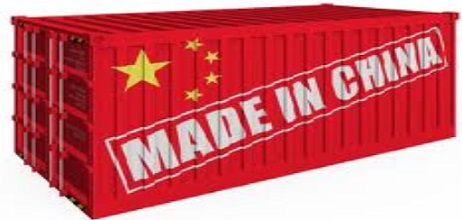In a rapid turn in fortunes after last year’s slide, the yuan’s sharp rebound since May presents a fresh headache for authorities, as intervening to cap it could expose China to accusations of currency manipulation by U.S President Donald Trump.
“Appreciation is better than deprecation, but the pace of appreciation cannot be too fast, otherwise it will be unfavourable for domestic firms,” said a policy insider, one of the four sources who spoke to Reuters.
The yuan paused this week just above 6.5 per dollar, a level policymaker sources said was one that was being watched, but then broke through it on Thursday and extended those gains on Friday to hit 6.4470, a 21-month high.
The rally has been spurred by the dollar’s broad decline, optimism about the economy, a crackdown on capital outflows, and more recently the central bank’s tighter control of the mid-point, from which the yuan can rise or fall 2 percent.
The yuan has gained nearly 7.8 percent against the dollar so far this year, including just over 6 percent since late May, more than making up its losses of 6.5 percent in 2016 – the biggest annual drop since 1994.
But while the end of the downward pressure is welcome after the central bank spent $1 trillion of reserves over 2-1/2 years to fight the slide, the concern is that the yuan’s rapid ascent could crunch exporters and the broader economy.
Any disruption to the economy would be unwelcome ahead of the Communist Party Congress in October, where President Xi Jinping hopes to strengthen and extend his leadership of the party.
“It could be disastrous if the yuan rises sharply,” said another policy adviser, one of the four sources involved in internal policy discussions but are not part of the final decision-making process.
“The economy has just showed some improvement due to a stronger global economy,” the adviser said.
One policy insider said commerce ministry officials – staunch advocates for exporters – had expressed concerns over the yuan’s surge.
The central bank and commerce ministry did not return requests for comment.
NO STRONG INTERVENTION
Still, the authorities are unlikely to intervene forcefully to weaken the yuan for fear of sparking fresh criticism over its currency practices from the United States, the policy insiders said.
The U.S. Treasury releases its next report on currency practices of trading partners in October. In April, it said the test for Beijing would be how they handled a strengthening yuan, leaving China in a bit of bind on how to respond to a rallying currency without raising Washington’s ire.
“China will need to demonstrate that its lack of intervention to resist appreciation over the last three years represents a durable policy shift by letting the (yuan) rise with market forces once appreciation pressures resume,” the Treasury said.
Some traders suspect the central bank is starting to signal a desire for the rally to moderate. On Friday, the central bank raised its official yuan midpoint for the 10th straight session – but it was much weaker than market expectations, market participants said.
Citi analysts said the PBOC could weaken the currency without direct intervention, including by encouraging repatriation of funds by firms, and easing capital control measures and investment restrictions.
“Overall, we think one-way RMB appreciation would face correction pressure, either induced by policy actions or driven by the market,” the analysts said.
One source close to the commerce ministry said the yuan’s rise has become “excessive.”
“From exporters’ perspective, 6.5 should be an important barrier. The yuan could rise to 6.3, which will be too strong.”
Source: Reuters (Additional reporting by Qizi Sun and Winni Zhou in Shanghai; Editing by John Mair & Shri Navaratnam)
Related Topics
Trump Faces China Economy That’s Changed Much in Eight Years

 Chinese policymakers are beginning to worry about a rallying yuan as exporters come under strain, policy insiders say, a sign the currency’s gains might lose steam after it scaled a near two-year top on the dollar as Beijing prepares for a crucial Communist Party gathering in the autumn.
Chinese policymakers are beginning to worry about a rallying yuan as exporters come under strain, policy insiders say, a sign the currency’s gains might lose steam after it scaled a near two-year top on the dollar as Beijing prepares for a crucial Communist Party gathering in the autumn.